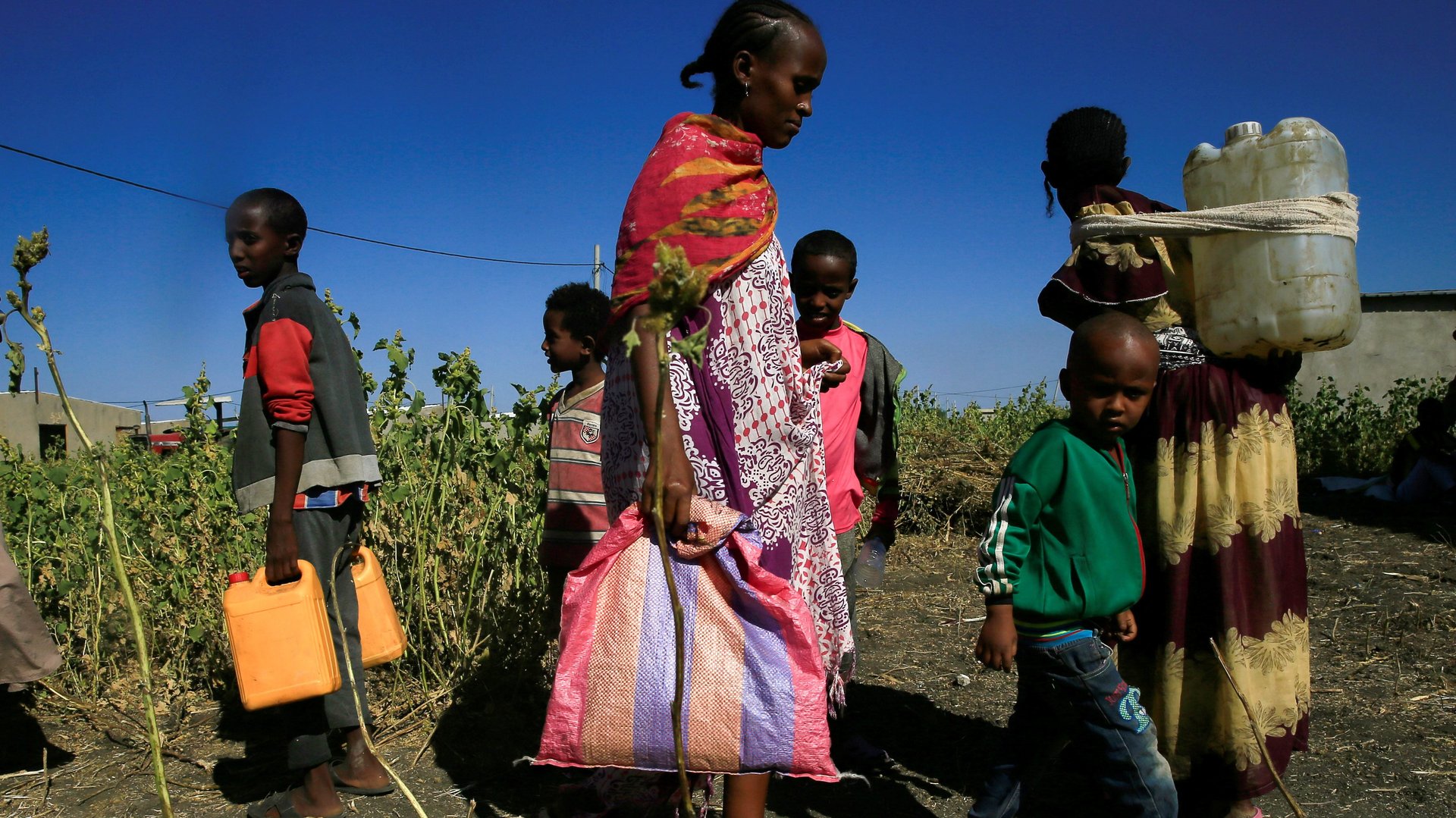Ethiopia doesn’t want the world to interfere even as a humanitarian crisis unfolds in its Tigray region
Ethiopia’s prime minister Abiy Ahmed has called on the international community to refrain from interfering in what his government sees as a law enforcement operation against the forces of Tigray People Liberation Front, the ruling party of one of the country’s 11 autonomous states.


Ethiopia’s prime minister Abiy Ahmed has called on the international community to refrain from interfering in what his government sees as a law enforcement operation against the forces of Tigray People Liberation Front, the ruling party of one of the country’s 11 autonomous states.
Reinstating his administration’s willingness to abide by international laws, Abiy urged the international community to resist “any unwelcome and unlawful acts of interference”, citing the non-intervention charter of the United Nations.
It was the latest move to push back on calls for Ethiopia to negotiate for a potential ceasefire and mediation with the TPLF which it accused of “treason” for attacking a military base and killings of soldiers that ultimately provoked its military action.
Many from the international community, including the current US government and the incoming Biden administration, the African and European Unions and others, have called for both sides to lay down arms and asked Ethiopia’s government to resolve its disputes with the TPLF through dialogue.
Tensions between the federal government and Tigray’s ruling party TPLF has been mounting for the two years since Abiy came to power. But they were ratcheted up when Tigray state held regional elections even after Addis Ababa had suspended national elections due to the coronavirus pandemic. The country’s House of Federation, the upper house of parliament, later outlawed the elections describing them as “null and void” but the TPLF, which won has ignored the federal government and moved ahead.
Things came to a head following an attack allegedly carried out by Tigray forces against the national army, the situation escalated to a deadly armed forced confrontation, followed by an airstrike. The prime minister, who won the Nobel Peace Prize last year for ending conflict with Eritrea, now insists international concerns about the growing conflict are a result of observers not having a deep understanding his country’s context.
Humanitarian crisis
Thousands of ordinary Ethiopians in the Tigray region have already been displaced and are streaming over the border to Sudan for safety. The United Nations and other global bodies have already recognized the unfolding situation as a humanitarian crisis.
Ethiopia has now embarked on what it calls the third and final phase of its law enforcement operation in Tigray, just after a claimed victory in Adigrat and Aksum as well as other key towns and remains on the suburbs of Mekele, as the army awaits for an impending instruction to enter the capital of the region, after a 72-hour warning for much of the TPLF leadership to hand themselves to authorities.
There’s a real risk the next battle could turn especially bloody after Getachew Reda, a spokesperson for the Tigray Special Forces, said civilians living in Mekele, Tigray’s biggest city, will be armed with everyone ready to fight to protect the region from the incoming national army. The federal government has claimed it will be able to take control of Mekele in the days ahead with minimal damage and casualties.
Hotels, schools, health facilities, and airports have already been severely damaged since the outbreak of fighting between the forces of the Ethiopian National Army and TPLF, according to the national government.
And there isn’t enough shelter capacity to meet the growing needs, says the United Nations High Commissioner for Refugees.
The number of Ethiopian refugees migrating into eastern Sudan have reached over 40,000 since the first signs of battle in early November. They’ve been fleeing the ongoing fighting in the Tigray region which escalated over this past weekend, according to UNHCR, which is facing logistical challenges as it overstretched due to mounting humanitarian needs.
But Ethiopia’s Human Rights Commission has accused authorities in Maikadra Town in Tigray region helping an informal group of youths, called Samri, who has allegedly massacred more than 600 people.
Researchers of the commission visited Maikadra, Abrhajira, Sanja, Dansha, Humera, and Gonder towns between Nov. 14 to Nov. 19 and their preliminary findings state that “what happened in Maikadra on Nov. 9, including the killings, bodily and mental injury, as well as the destruction that went on throughout the night, strongly indicate the commission of grave human rights violations which may amount to crimes against humanity and war crimes.”
Sign up to the Quartz Africa Weekly Brief here for news and analysis on African business, tech, and innovation in your inbox